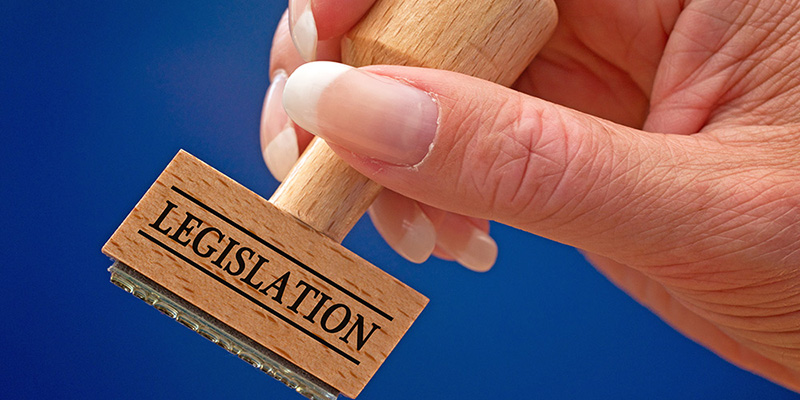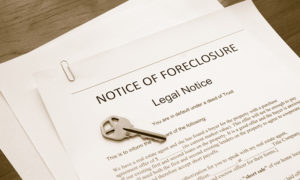California AB 2273 Bill Has Passed, What Does It Mean?

A down economy often leads to high HOA delinquency rates. Associations definitely feel the brunt of this as it also becomes harder to pay for operating expenses — which are crucial to the community’s operations. HOA foreclosures can help communities recover unpaid assessments, but this process usually takes a very long time. Thankfully, with the passage of the California AB 2273 Bill, HOAs will be able to collect delinquent assessments much faster.
Browse By Category
Sign up for Our Newsletter
A down economy often leads to high HOA delinquency rates. Associations definitely feel the brunt of this as it also becomes harder to pay for operating expenses — which are crucial to the community’s operations. HOA foreclosures can help communities recover unpaid assessments, but this process usually takes a very long time. Thankfully, with the passage of the California AB 2273 Bill, HOAs will be able to collect delinquent assessments much faster.
What Is the California AB 2273 Bill?
California’s Assembly Bill No. 2273 was approved in 2012 and it took effect in January 2013. The bill sought to amend Section 2924b of the Civil Code and added Section 2924.1 to the Civil Code.
Section 2924.1 states: “(a) Notwithstanding any other law, the transfer, following the sale, of property in a common interest development, as defined by Section 1351, executed under the power of sale contained in any deed of trust or mortgage, shall be recorded within 30 days after the date of sale in the office of the county recorder where the property or a portion of the property is located.
(b) Any failure to comply with the provisions of this section shall not affect the validity of a trustee s sale or a sale in favor of a bona fide purchaser.”
The eight-page legislation can be difficult to understand for the average person. The big takeaway here is to record foreclosure sales with the county recorder’s office within 30 days.
The Relationship Between HOA and the California AB 2273 Bill
To really understand the significance of the California AB 2273 Bill, you first need to know some of the basics of the Davis-Stirling Common Interest Development Act. Davis-Stirling has first enacted the California Civil Code in 1985. The legislation governs common interest developments such as homeowners associations, condominium associations, and cooperatives in the state.
The Davis-Stirling Act is quite comprehensive. But for the purpose of the California AB 2273 Bill, you only need to know two important points. First, the act authorizes common interest developments to collect monthly assessments and levy special assessments to members of the community. Second, associations have the authority to record a lien for delinquent assessments (plus late fees and interest charges). An association can also foreclose the property of a delinquent homeowner if unpaid assessments amount to at least $1,800 and delinquency is at least 12 months old.
When a foreclosed property goes on sale, the new owner will assume the responsibility for all unpaid assessments.
What Is the Significance of California AB 2273 Bill for HOAs?
 We know that foreclosures are hard on homeowners, but it has a significant impact on homeowners associations as well. An HOA largely depends on the community members’ assessments to operate. So, an increase in delinquency rates will most likely lead to HOA debts, which would then put your community in the red.
We know that foreclosures are hard on homeowners, but it has a significant impact on homeowners associations as well. An HOA largely depends on the community members’ assessments to operate. So, an increase in delinquency rates will most likely lead to HOA debts, which would then put your community in the red.
Liens and foreclosures help associations recover delinquent assessments. When an HOA property is sold, the new owner — usually banks and lenders — will pay off unpaid assessments and continue paying for future assessments. This would then enable them to improve finances — which is crucial during a down economy. However, prior to the California AB 2273 Bill, associations had a hard time determining the new owners of foreclosed properties. Since there was no required time frame, lenders would take a long time to record the foreclosure sale. Thus, associations had a hard time collecting delinquent assessments.
Now that the California AB 2273 Bill is in place, there is a requirement for the lender to send the HOA a copy of the property deed within 15 business days after the foreclosure sale. Lenders must also record the foreclosure sale in the county recorder’s office within 30 days of the sale. Essentially, the California AB 2273 Bill streamlines the foreclosure sale process. The legislation makes it easier for HOAs to identify a property’s new owner and collect delinquent assessments from them. But, to ensure that the process goes smoothly, HOAs must also record a “Request for Notice” upon foreclosure of a property.
California AB 2273 Bill Helps HOAs During a Down Economy
The California AB 2273 Bill was initially proposed due to California’s housing crisis in 2011. Nevertheless, this legislation is still very valuable for HOAs — especially in the event of another economic downturn. Associations can collect delinquent assessments from new owners within a month of the sale, and this can go a long way in preventing HOA debts in your community.
RELATED ARTICLES:
Trending Now
Related Article
Sign up for Our Monthly Newsletter
Sign up below for monthly updates on all HOA Resource
















